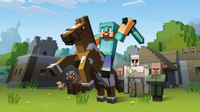Minecraft is using a spatial simulation engine to make 'larger and more immersive experiences'
It's the same tech behind EVE Online's Aether Wars experiment.
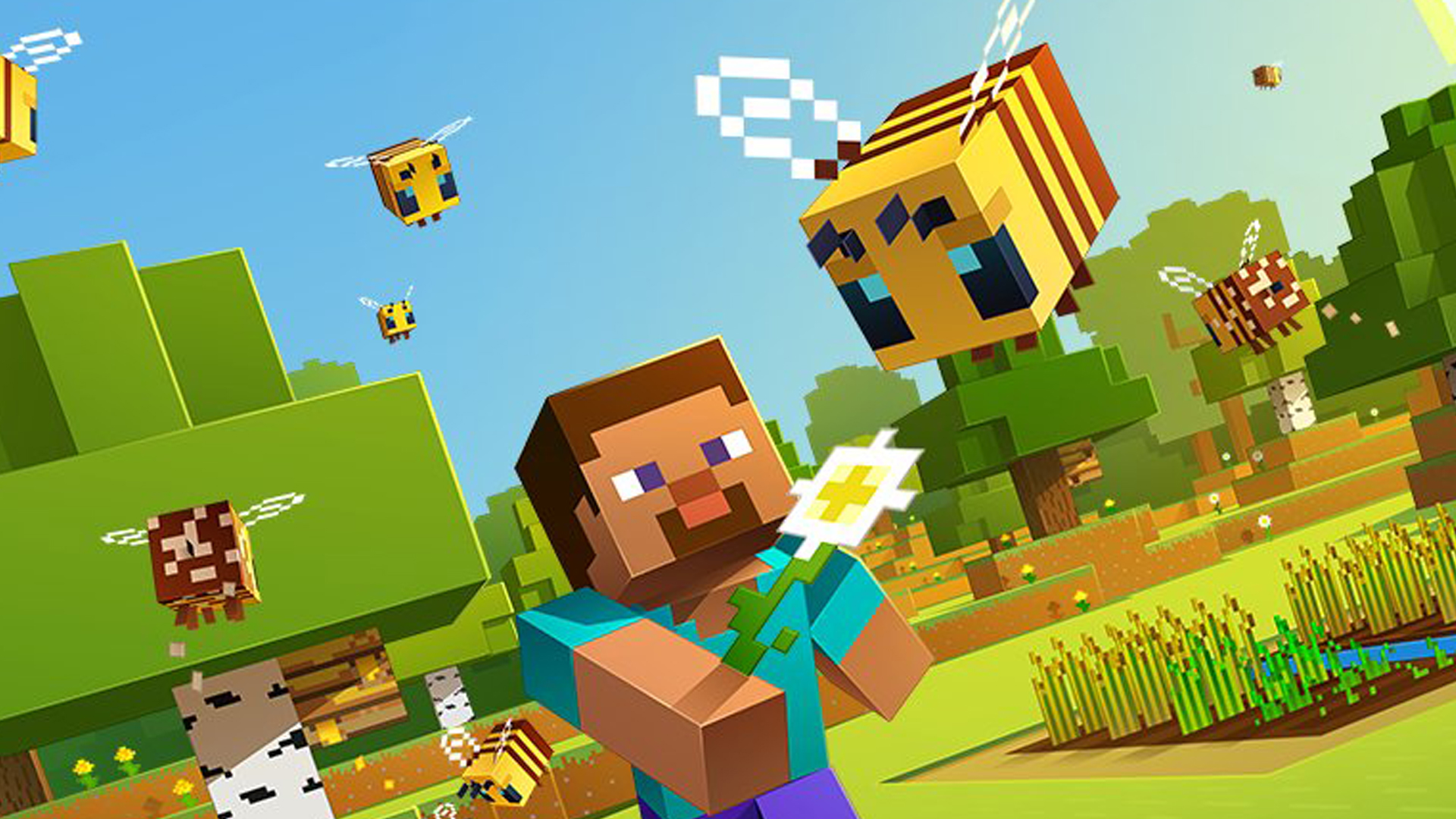
Last year, across multiple tests, thousands of human players and AI pilots duked it out in an EVE Online tech demo, Aether Wars. The first battle saw around 14,000 pilots trying to blow each other up, and thanks to some wizardry, it didn't become an intolerable slide show. Hadean's Aether Engine was responsible, and today the company announced it's being made available to more developers, starting with Minecraft's Mojang.
MMOs and online games usually impose player limits, separate them into instances or use tricks like EVE Online's time dilation—which slows things down to give the server time to work through its massive queue of tasks—to keep lag under control. Using distributed computing, however, the Aether Engine spreads the load and is able to dynamically scale to stop performance from tanking.
In places where there are lots of players, physics or other things that might put a strain on the game—like a busy starting area in a new MMO or a mindbogglingly huge space battle—the engine allocates more servers to keep up with the demands of the simulation, while servers are taken down for quieter areas, keeping things consistent across the game world.

The applications for the Aether Engine seem to be quite broad, with it also being used to help model protein interactions to improve drug design modelling, as well as simulate the spread of the coronavirus, but gaming is Hadean's focus at the moment. It's a good place to test and prove new technology, says CEO Craig Beddis.
"An MMO is fundamentally just a distributed computing use case. We wanted to target use cases where we could prove our tech and demonstrate its viability and its proof points, and gaming is a great use case because you don't have the barriers to entry like you have in financial services or life sciences. Gaming is notoriously recognised as being a very early adopter of new tech, and most great tech, whether it's AI or things like Deep Mind, improves through gaming. So we targeted gaming."
Hadean was "painting a vision of the future where you're building things on the cloud for the cloud" with Aether Wars, says Beddis. It would have big implications for EVE Online proper, though CCP has yet to announce what, if any, plans it has for the engine. The experiment caught Mojang's attention, however, and Hadean let the studio see what the engine could do for Minecraft. In three days, one Mojang developer made a 1,024-player lobby. Mojang hadn't worked with the engine before, and Hadean's engineers had no experience with Minecraft's engine.
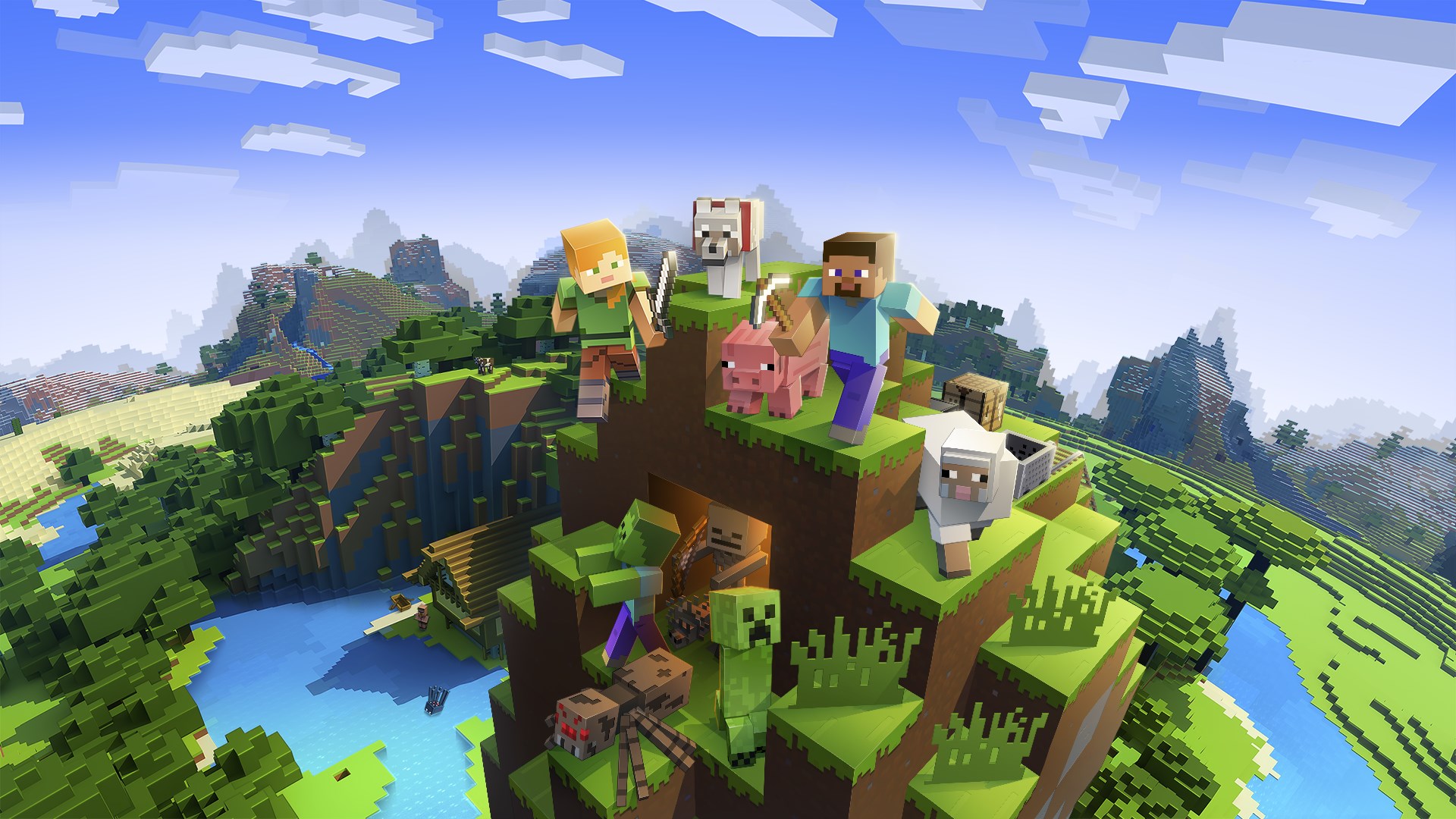
While big player numbers are an eye-catching feature, the engine can benefit games of varying scopes, says Beddis. Maybe you're not anticipating 10,000 players all clamouring to play together, but it can still be used to assist in the creation of elaborate game worlds.
The biggest gaming news, reviews and hardware deals
Keep up to date with the most important stories and the best deals, as picked by the PC Gamer team.
"It's about the kind of high fidelity that we can bring with real-time simulations," he says. "It's the size and scope of the worlds that you can build out. There's so much we can explore as games move outside of gaming to a much more connected social economic system. It's about building games that you can't build today, and connecting those games with experiences that you can't do today."
Due to the coronavirus and Fortnite's epic ambitions, online games are also increasingly serving another role: as event spaces where people can watch movies or concerts together. The engine can facilitate these events, too, supporting larger crowds and more complex shows. Imagine the impressive Travis Scott concert in Fortnite, but instead of just seeing 50 people jumping around, you're popping off emotes with more people than you could fit into a huge stadium.

"Everyone's kinda got Fortnite envy," Beddis says. "With this merging of games with social media and virtual events, there's is a shift with games, where getting more players into the game is not just a big financial benefit, it also allows them to open their minds up about the games they'd like to build but couldn't. So that's very much where we're going now with Minecraft. [Mojang] see the ability to open this up way, way above the player rate that they currently have today. It gives them a whole new lens to see—similar to the vision around what future EVE could be like—what future Minecraft could be like."
Specifics, unfortunately, are still under wraps, but Mojang CTO Michael Weilbacher reckons it's a "game-changer".
"Introducing Aether Engine to Minecraft opens up an array of exciting new experiences, events and game modes for our players," he tells me. "Aether Engine is adept at handling increased connections and computational complexity, which will allow us to create larger and more immersive experiences than ever before. Increasing player capacity and production capabilities also opens up new revenue opportunities, without radically overhauling the existing infrastructure of Minecraft."
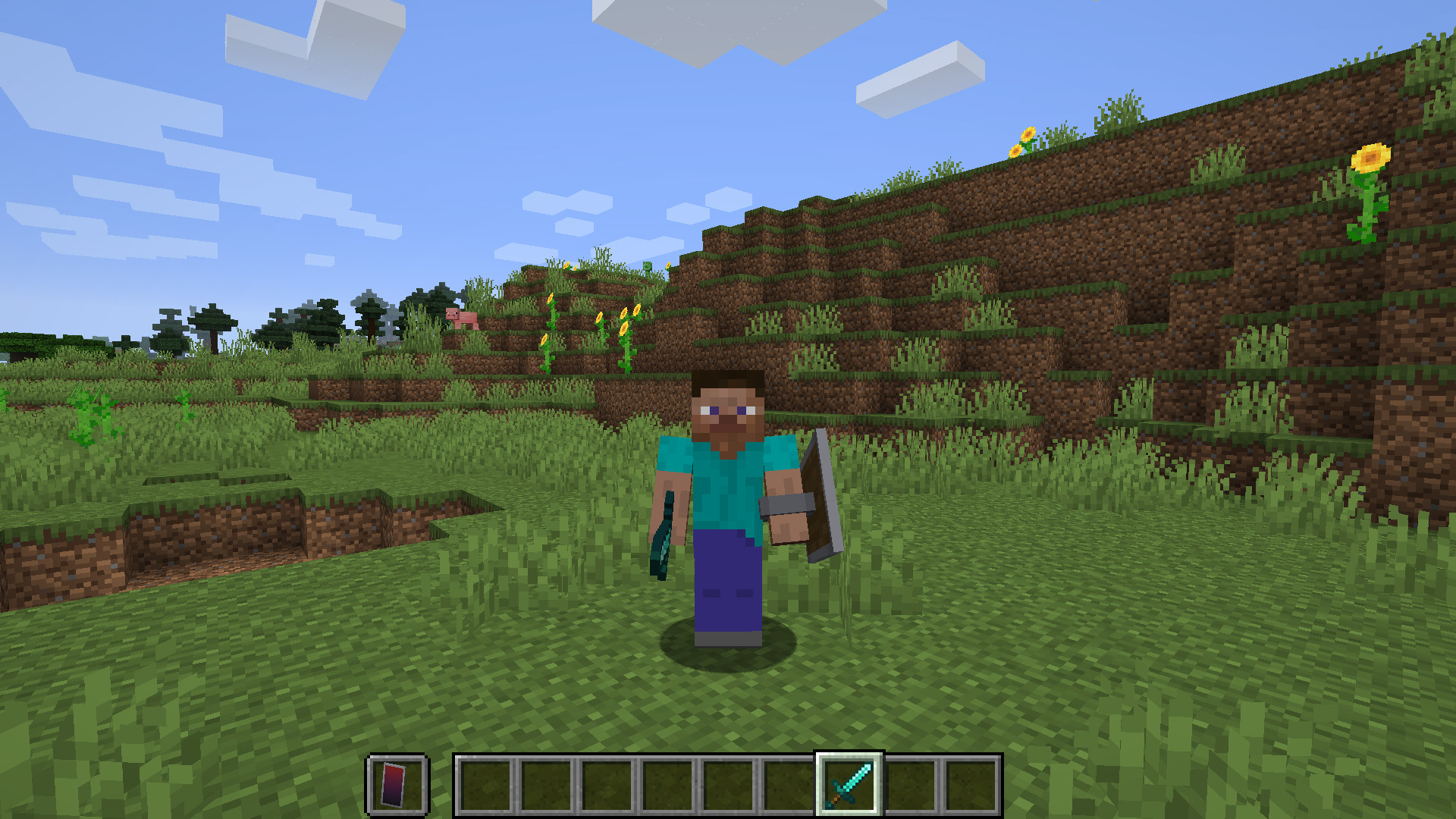
- Minecraft skins: The best new looks
- Minecraft servers: The best online worlds
For players, that won't change the fundamentals of Minecraft, but it should give them a lot more to work with and more things to create, potentially, like player-run worlds with the scope of an MMO. And then there's the enhancements Mojang can make to existing modes, and the new modes that could come out of it.
The scalability also means that, while Hadean has been working with larger studios like Mojang, Aether Engine is also suitable for indies, or even hobbyists.
"We want to empower the best and brightest people on the planet to be able to build applications that they can build today," Beddis says. "Effectively, Hadean uses the internet as one giant supercomputer, but you only use what you need when you need to use it, so what that means for a game developer, any developer, is it allows you to compete with the big boys, because you you have that flexibility, that power, as and when you need it."

At the moment, however, Hadean's been preparing by working with a few large studios. The plan is to get the Aether Engine out, as a product, by the end of this year, adding more names to its list of partners as it makes its way there. But the goal is still to eventually make it a tool that developers of any size can benefit from.
It's an exciting prospect. Imagine an online launch not hampered by server issues. No more agonisingly long queues or lag or randomly disconnecting—it sounds like a dream. It seems like almost every single online game, whether it's a surprise like Fall Guys or the latest World of Warcraft expansion, seems to underestimate just how many people want to play it straight away, which would make the dynamic scaling of the Aether Engine a major boon.
Mojang hasn't said when we'll start to see the results of the work it's been doing with the Aether Engine, and beyond Minecraft it will probably be a while until its impact is apparent. It could be years before the games it ends up powering appear, though existing games could start taking advantage of it sooner. Hadean's trying to predict the future of where gaming, specifically cloud gaming, is going to end up.
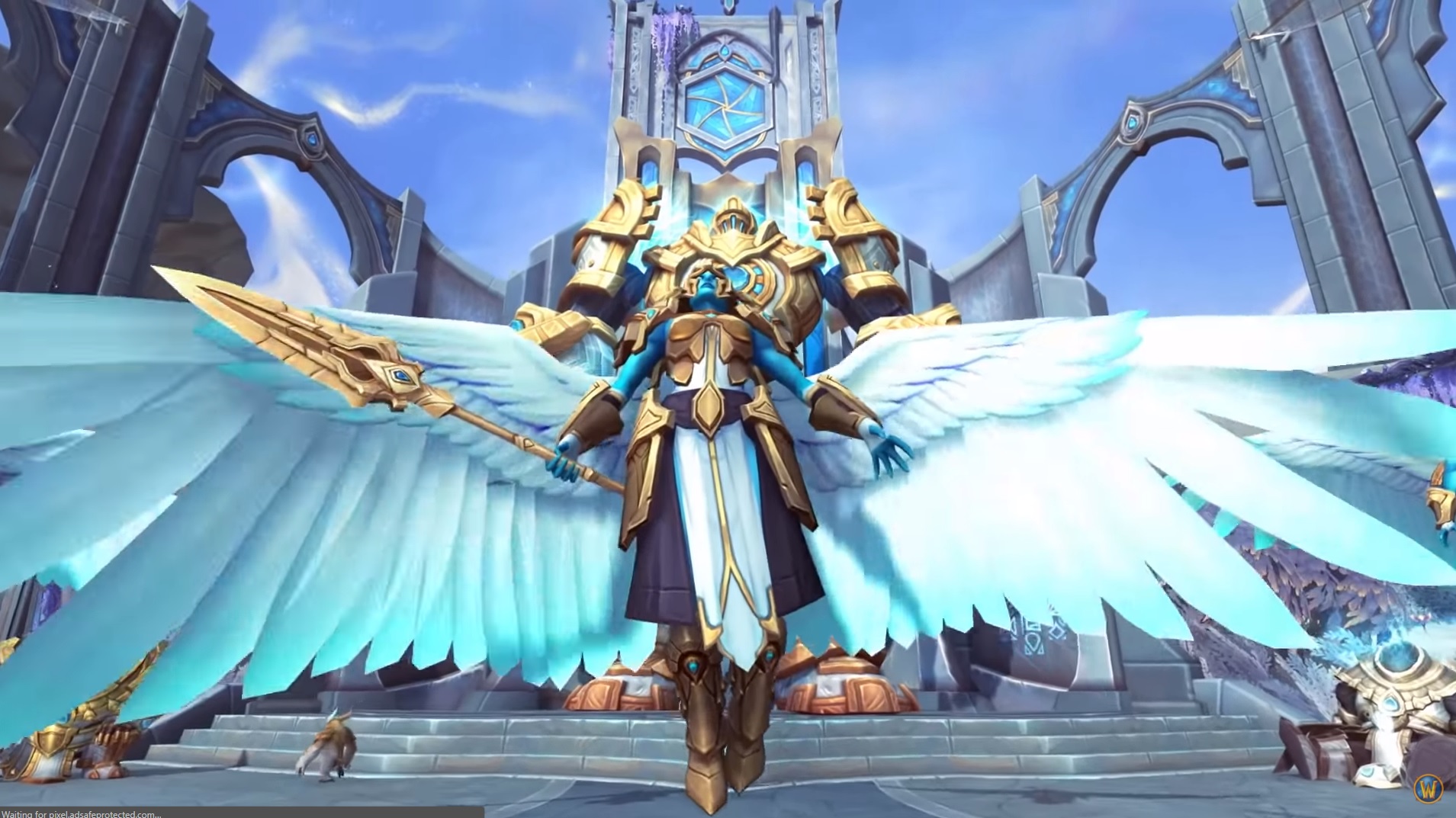
"The vision was always to build a platform for not just where the cloud is today, but where the cloud is going to be going," Beddis says. "The cloud as we know it today isn't fit for purpose in terms of the kind of performance, reliability and scale that's going to be needed to leverage the opportunities that we see."
It's a long-term goal, he says, but he predicts we'll start to see developers build their own applications, their own versions of the Aether Engine, whether it's for a game or something else, like digital events, in the next 18 months.
- Minecraft seeds: Visit amazing worlds
- Minecraft mods: Refresh your game
- Minecraft shaders: Give your environment a new look

Fraser is the UK online editor and has actually met The Internet in person. With over a decade of experience, he's been around the block a few times, serving as a freelancer, news editor and prolific reviewer. Strategy games have been a 30-year-long obsession, from tiny RTSs to sprawling political sims, and he never turns down the chance to rave about Total War or Crusader Kings. He's also been known to set up shop in the latest MMO and likes to wind down with an endlessly deep, systemic RPG. These days, when he's not editing, he can usually be found writing features that are 1,000 words too long or talking about his dog.
